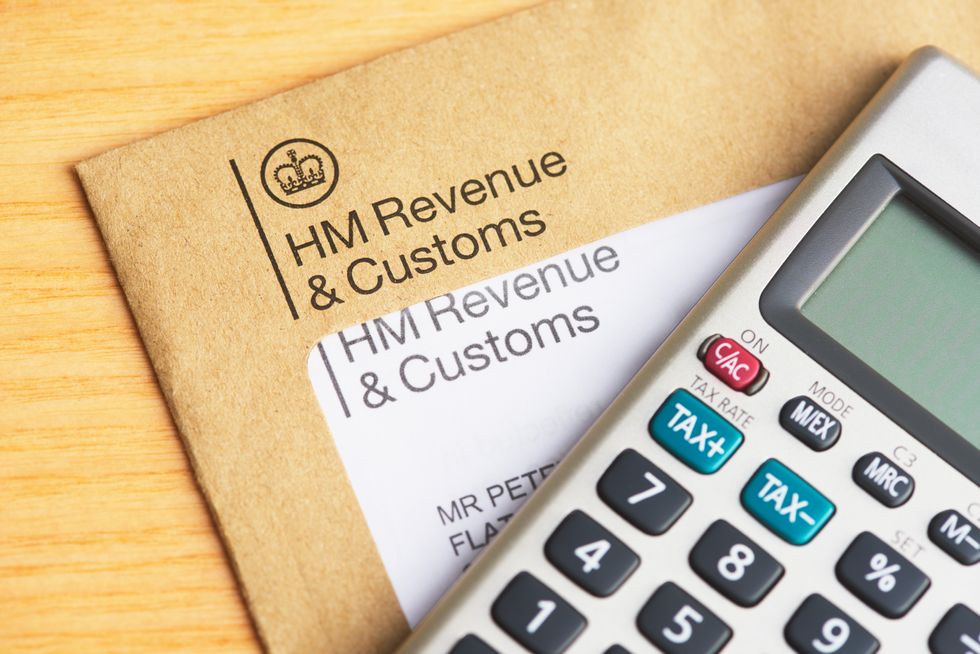Britons are being urged to check their tax code is correct
GETTY
HMRC informs employers and pension providers with tax codes, but it’s down to the taxpayer to check if their tax code is correct
Don't Miss
Most Read
Trending on GB News
Britons should check their tax code to avoid being hit with a “nasty surprise” at the end of this tax year.
With the 2024/25 tax year beginning earlier this month, now could be a good opportunity to take a closer look at one’s tax code.
PAYE taxpayers are assigned a tax code from HMRC, so an employer or pension provider knows how much tax to deduct.
Stevie Heafford, tax partner at HW Fisher, explained people should get a paper copy of the coding notice (known as P2) or HMRC might send a notification via the online “Personal Tax Account” service.
The tax expert warned the wrong tax code could lead to HMRC holding onto more tax than is due for months, or result in those who have underpaid tax hit with a big tax bill in future.
She said: “If you do not check the coding notice, you could be in for a nasty surprise at the end of the tax year or, conversely, you have overpaid tax which could have been paid out to you if your coding had been correct.
“It’s important to make HMRC aware of the correct tax code to ensure that if you are due a pay out from HMRC you receive it.”
People with multiple employments or pensions could get several different coding notices.
It’s down to the employee or pensioner to check their tax code is right, and estimations “aren’t always correct”.
Heafford explained: “The fact that some items within the code are, necessarily, estimated or based on prior years can mean that you are being taxed on benefits which you are no longer receiving.
“Additionally, you could be receiving relief for expenses you are no longer paying – which could lead to a significant underpayment of tax if not picked up which eventually you will have to pay back.
“Alternatively, if you have moved to a new job with better benefits, these may not be included in your code which could lead to an underpayment of tax by the end of the year.”
People with more than one employment or pension should get a PAYE notice for each, but Heafford said it’s “important” to check that only one personal allowance has been allocated. Generally, HMRC will allocate the personal allowance to the main source of income.
She explained: “This could happen if, say, there is a new source of income.
“If you have multiple sources of income and HMRC allocate the allowance to one of them, they may impose a flat rate on the other sources and, depending on the total amounts of income, this may lead to an incorrect amount of tax being deducted.
“It can get complicated where estimated tax adjustments are included in the code because, if these are not correctly adjusted, they could carry on impacting deductions over a number of periods.”
What’s in the tax code?
The most common tax code in the 2024 to 2025 tax year is 1257L.
The 1257 signifies the taxpayer can earn £12,570 – the current personal allowance – before being taxed.
The L shows the employee is entitled to the standard tax-free personal allowance.
Heafford said: “The code will start with the personal allowance but there may be adjustments for things such as benefits. HMRC expect you to receive taxable benefits based on previous years for instance, company cars, private medical insurance, pension contributions or allowable expenses.
“There could also be adjustments for under or overpayments of tax for previous years, estimated by HMRC.”
“HMRC could also include restrictions in the code for other sources of income such as state pension as tax is not deducted from the state pension directly.
“In some cases, this can lead to a situation where there are negative allowances and, in those circumstances a “K” code will be issued which effectively taxes an additional sum each month to collect the tax.”
LATEST DEVELOPMENTS:

The most common tax code in the 2024 to 2025 tax year is 1257L
GETTY
What to do if your tax code is wrong
Considering the complexity of some coding notices, “many” will not be completely correct, the tax expert said.
However, an employer or pension provider cannot adjust the deductions without a notification from HMRC.
Heafford said: “You will need to contact HMRC to explain why you think the code needs to be changed which can be done either online or by letter.
“Employers must also ensure that they are using the code notified to them by HMRC. If you are aware of your correct tax code and you have notified HMRC, please do make sure to let your employer know so that everything is adjusted correctly.”








